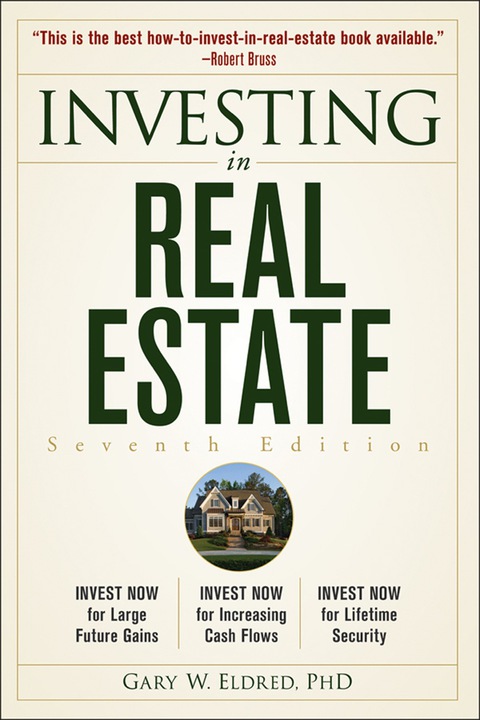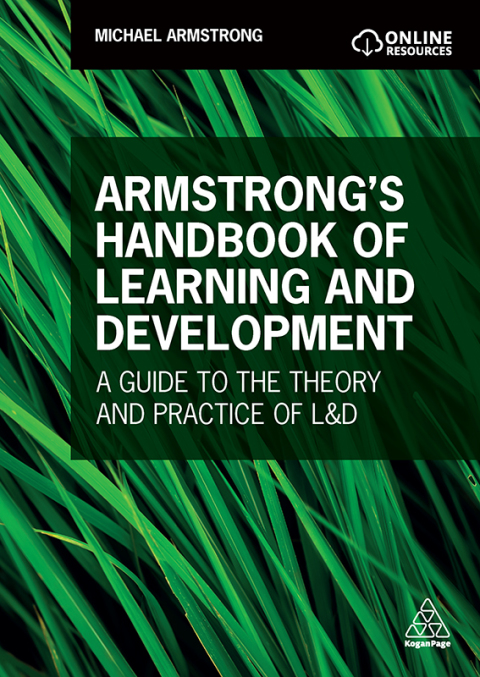Description
Efnisyfirlit
- Investing in Real Estate
- Contents
- Acknowledgments
- Prologue: Invest in Property Now
- 1: Achieve a Prosperous Future: 22 Ways You Can Earn Profits with Property
- 22 Sources of Profit from Investment Property
- Will the Property Experience Price Gains from Appreciation?
- Will You Gain Price Increases from Inflation?
- Earn Good Returns from Cash Flows
- Magnify Your Equity Gains with Leverage
- Magnify Returns from Cash Flows with Leverage
- Build Wealth through Mortgage Payoff
- Over Time, Returns from Rents Go Up
- Refinance to Lift Your Cash Flows
- Refinance to Pocket Cash
- Buy at a Below-Market Price
- Sell at an Above-Market-Value Price
- Create Property Value through Smarter Management
- Create Value with a Savvy Market Strategy
- Create Value: Improve the Location
- Convert from Unit Rentals to Unit Ownership
- Subdivide Your Bundle of Property Rights
- Subdivide the Physical Property (or Space within a Property)
- Create Plottage (or Assemblage) Value
- Obtain Development or Redevelopment Rights
- Diversify Away from Financial Assets
- Is Property Your Best Investment Choice?
- 2: OPM: Borrow Smart, Raise Cash, Build Equity
- The Birth of “Nothing Down”
- Should You Invest with Little or No Cash or Credit?
- What’s Wrong with “No Cash, No Credit, No Problem”?
- Leverage: Pros and Cons
- What Are Your Risk-Return Objectives?
- Maximize Leverage with Owner-Occupancy Financing
- Owner-Occupied Buying Strategies
- Current Homeowners, Too, Can Use This Method
- Why One Year?
- Where Can You Find High-LTV Owner-Occupied Mortgages?
- What Are the Loan Limits?
- High Leverage for Investor-Owner Financing
- High Leverage versus Low (or No) Down Payment
- Creative Finance Revisited
- Are High-Leverage Creative-Finance Purchases Readily Available?
- Build Confidence with Lenders, Investors, Sellers, and Sales Agents
- Credit Scores and Credit Record
- Capacity (Monthly Income)
- Cash Reserves and Source of Down Payment
- Collateral
- Loan-to-Value Ratios
- Recourse to Other Assets or Income
- Character
- Competence and Experience
- Compensating Factors
- Automated Underwriting (AUS)
- 3: Appraisal: Ins and Outs of Market Value
- What Is Market Value?
- Sales Price Doesn’t Necessarily Equal Market Value
- Underwriting Rules Determine the Value in LTV
- How to Estimate Market Value
- Property Description
- Identify the Subject Property
- Neighborhood
- Site (Lot) Characteristics
- Improvements
- The Cost Approach
- Calculate Cost to Build New
- Deduct Depreciation
- Lot Value
- Estimate Market Value (Cost Approach)
- The Comparable Sales Approach
- Select Comparable Properties
- Approximate Value Range—Subject Property
- Adjust for Differences
- Explain the Adjustments
- The GRM Income Approach
- Income Capitalization
- Net Operating Income
- Estimate Capitalization Rates (R)
- Compare Cap Rates
- Relative Prices: The Paradox of Risk and Appreciation (Depreciation)
- Valuation Methods: Summing Up
- Appraisal Limiting Conditions
- Valuation versus Investment Analysis
- 4: Maximize Cash Flows and Grow Your Equity
- Will the Property Yield Good Cash Flows?
- Arrange Alternative Terms of Financing
- Decrease (or Increase) Your Down Payment
- Buy at a Bargain Price
- Should You Ever Pay More than Market Value for a Property?
- The Debt Coverage Ratio
- Numbers Change, Principles Remain
- Will the Property Yield Profitable Increases in Price?
- Low-Involvement versus High-Involvement Investing
- Compare Relative Prices of Neighborhoods (Cities)
- Undervalued Neighborhoods and Cities
- Beverly Hills versus Watts (South Central Los Angeles)
- Demographics
- Accessibility (Convenience)
- Improved (Increased) Transportation Routes
- Jobs and Economic Base
- Taxes, Services, and Fiscal Solvency
- New Construction, Renovation, and Remodeling
- Land-Use Laws
- Pride of Place
- Sales and Rental Trends
- Summing Up
- 5: Pay Less than Market Value
- Why Properties Sell for Less (or More) than Market Value
- Owners in Distress
- The Grass-Is-Greener Sellers
- Stage-of-Life Sellers
- Seller Ignorance
- Prepare Screening Criteria
- Bargain Sellers
- Networking/Get the Word Out/Social Media
- Newspapers and Other Publications
- Cold Call Owners
- Agent Services
- Internet Listings
- Seller Disclosures
- The Disclosure Revolution
- Income Properties
- Summary
- 6: Profit with Foreclosures
- The Foreclosure Process
- Lender Tries to Resolve Problem
- Filing Legal Notice
- The Foreclosure Sale
- REOs
- Buy Preforeclosures from Distressed Owners
- Approach Owners with Empathy
- The Difficulties of Dealing Profitably with Owners in Default
- Prequalify Homeowners and Properties
- Finding Homeowners in Default (Prefiling)
- Networking
- Mortgage Collections Personnel
- Drive Neighborhoods
- Find Homeowners (Postfiling)
- Cultivate a Relationship with Property Owners
- Two More Issues
- Vacant Houses
- Satisfy Lenders and Lien Holders
- All Parties Are Better Off
- Win by Losing Less
- Profit from the Foreclosure Auction
- Why Foreclosures Sell for Less than Market Value
- Make the Adverse Sales Efforts Work for You
- How to Arrange Financing
- The Foreclosure Sale: Summing Up
- 7: Profit from REOs and other Bargain Sales
- Sad for Sellers and Builders, Bargains for You
- How to Find REOs
- Follow Up with Lenders after Foreclosure Sales
- Locate Specialty Realtors
- HUD Homes and Other HUD Properties
- Homeowners versus Investors
- As-Is Condition
- Potential Conflict of Interest
- Buyer Incentives
- The Bid Package
- Department of Veterans Affairs (REOs)
- Big Advantages for Investors
- Fannie Mae and Freddie Mac REOs
- Agent Listings
- Investors Invited
- Federal Government Auctions
- Buy from Foreclosure Speculators
- Probate and Estate Sales
- Probate
- Estate Sales
- Private Auctions
- How to Find Auctions
- 8: Profit by Creating Value
- Fix, Sell, Profit!
- Your Fixer-Upper Search
- The Browns Create Value in a Down Market
- Research, Research, Research
- Improvement Possibilities
- Deep Clean the Property
- Add Pizzazz with Color Schemes, Decorating Patterns, and Fixtures
- Create Usable Space
- Create a View
- Capitalize on Owner Nearsightedness
- Eliminate a Negative View
- Enhance the Unit’s Natural Light
- Reduce Noise
- Required Repairs and Improvements
- Plumbing
- Electrical System
- Heating and Air Conditioning
- Windows
- Appliances
- Walls and Ceilings
- Doors and Locks
- Landscaping
- Storage Areas
- Clean Well
- Safety and Health
- Roofs
- Improvements and Alterations
- You Can Improve Everything about a Property—Including Its Location
- South Beach: From Derelicts to Fashion Models
- Community Action and Community Spirit Make a Difference
- Neighborhoods Offer Potential
- What Types of Improvements Pay the Greatest Returns?
- How Much Should You Budget for Improvements?
- Beware of Overimprovement
- Other Benefits
- No-No Improvements?
- Budgeting for Resale Profits
- Estimate the Sales Price First
- Estimate Costs
- Future Sales Price – (Costs + Profit) = Maximum Acquisition Price
- Comply with Laws and Regulations
- Should You Buy a Fixer-Upper?
- Too Little Time?
- Put Your Creativity to Work
- 9: More Techniques to Profit with Property
- Lease Options
- Here’s How Lease Options Work
- Benefits to Tenant-Buyers (an Eager Market)
- Benefits to Investor-Sellers
- The Lease Option Sandwich
- How to Find Lease Option Buyers and Sellers
- A Creative Beginning with Lease Options (for Investors)
- Lease Purchase Agreements
- Seems More Definite
- Amount of the Earnest Money (Option) Deposit
- Contingency Clauses
- Conversions
- Condominium Conversion
- Convert Apartments to Office Space
- Tenants in Common
- Master Leases
- Assignments: Flipping Purchase Contracts
- Summary
- 10: Negotiate a Win-Win Purchase Agreement
- Win-Win Principles
- The Purchase Contract
- Names of the Parties
- Site Description
- Building Description
- Personal Property
- Price and Financing
- Earnest Money Deposit
- Quality of Title
- Property Condition
- Preclosing Property Damage (Casualty Clause)
- Closing (Settlement) Costs
- Closing and Possession Dates
- Leases
- Contingency Clauses
- Assignment and Inspection
- Public Records
- Systems and Appliances
- Environmental Hazards
- No Representations
- Default Clause
- Summary
- 11: Strategic Management Builds Equity
- The 10:1 Rule (More or Less)
- Think First
- Know Yourself
- Know Your Finances
- Know Your Capabilities
- Smart Strategic Decisions
- Tailor Strategy to Local Markets
- Craig Wilson’s Profit-Boosting Market Strategy
- How Craig Wilson Used Market Information to Enhance Profitability
- Results
- Cut Operating Expenses
- Energy Audits
- Property Insurance
- Maintenance and Repair Costs
- Property Taxes and Income Taxes
- Add Value: Closing Words
- 12: Develop the Best Lease
- The Mythical Standard Lease
- Your Market Strategy
- Search for Competitive Advantage
- Craft Your Rental Agreement
- Names and Signatures
- Joint and Several Liability
- Guests
- Length of Tenancy
- Holdover Tenants (Mutual Agreement)
- Holdover Tenants (without Permission)
- Property Description
- Inventory and Describe Personal Property
- Rental Amounts
- Late Fees and Discounts
- Multiple Late Payments
- Bounced Check Fees and Termination
- Tenant “Improvements”
- Owner Access
- Quiet Enjoyment
- Noxious Odors
- Disturbing External Influences
- Tenant Insurance
- Sublet and Assignment
- Pets
- Security Deposits
- Yard Care
- Parking, Number, and Type of Vehicles
- Repairs
- Roaches, Fleas, Ants
- Neat and Clean
- Rules and Regulations
- Wear and Tear
- Lawful Use of Premises
- Notice
- Failure to Deliver
- Utilities, Property Taxes, Association Fees
- Liquid-Filled Furniture
- Abandonment of Property
- Nonwaivers
- Breach of Lease (or House Rules)
- No Representations (Full Agreement)
- Arbitration
- Attorney Fees (Who Pays?)
- Written Notice to Remedy
- Tenants’ Rights Laws
- Tenant Selection
- Property Operations
- Evictions
- Landlording: Pros and Cons
- Possibilities, Not Probabilities
- Professional Property Managers
- 13: Create Promotions that Sell
- Design a Winning Value Proposition
- Yet Generic Prevails
- USP versus WVP
- Craft Your Selling Message
- Use a Grabber Headline or Lead
- Reinforce and Elaborate
- Add Hot Buttons
- Establish Credibility
- Compare to Substitutes
- Evoke Emotional Appeal
- Reduce Perceived Risks
- Make It Easy for Prospects to Respond
- Follow Up with Your Prospects
- Reach Potential Buyers
- For Sale Signs
- Flyers and Brochures
- Networking (Word of Mouth)
- Websites and Links
- Sales Agents
- Should You Employ a Realty Agent?
- Services to Sellers
- Services to Buyers
- Co-Op Sales
- Listing Contracts
- 14: Pay Less Tax
- The Risks of Change and Complexity
- Homeowner Tax Savings
- Capital Gains without Taxes
- Rules for Vacation Homes
- Mortgage Interest Deductions
- Credit Card Interest
- Rules for Your Home Office
- Depreciation Expense
- Land Value Is Not Depreciable
- Land Values Vary Widely
- After-Tax Cash Flows
- Passive Loss Rules
- Taxpayers in the Real Property Business (No Passive Loss Rules)
- Alternative Minimum Tax
- Capital Gains
- A Simplified Example
- The Installment Sale
- What’s the Bottom Line for Sellers?
- Implications for Buyers
- Tax-Free Exchanges
- Exchanges Don’t Necessarily Involve Two-Way Trades
- The Three-Party Exchange
- Exchanges Are Complex but Easy
- Are Tax-Free Exchanges Really Tax Free?
- Section 1031 Exchange Rules
- Reporting Rental Income and Deductions
- Tax Credits
- Complexity, Tax Returns, and Audits
- Use a Tax Pro
- Property Taxes
- Summary
- 15: More Ideas for Profitable Investing
- Out-of-Area Investing
- Reasons to Invest Elsewhere
- What about Property Management?
- Tenant-Assisted Management
- Property Management Companies
- Emerging Growth Areas
- The Creative Class
- Implications for Investing in Real Estate
- Right Place, Right Time
- Emerging Retirement and Second-Home Areas
- Which Cities and Areas?
- Income Investing
- Out-of-Area Caveats
- Commercial Properties
- Low Effort Management
- The Upside and Downside
- Opportunity for High Reward
- Commercial Leases Create (or Destroy) Value
- Triple Net (NNN)
- Self-Storage
- Mobile Home Parks
- Profitable Possibilities with Zoning
- Tax Liens and Tax Deeds
- Localities Differ
- Are Tax Liens and Tax Deeds an Easy Way to Make Big Profits?
- Discounted Paper
- What Is Discounted Paper?
- Here’s How the Loan Sale Works
- Sell the Note at a Premium
- Delinquent and Nonperforming Loans
- Due Diligence Issues
- Should You Form an LLC?
- Different Strokes for Different Folks
- Court Rulings
- One Size Doesn’t Fit All
- 16: Opportunity for a Lifetime
- USA: Right Time, Right Price, Right Place
- Personal Opportunity
- Index





